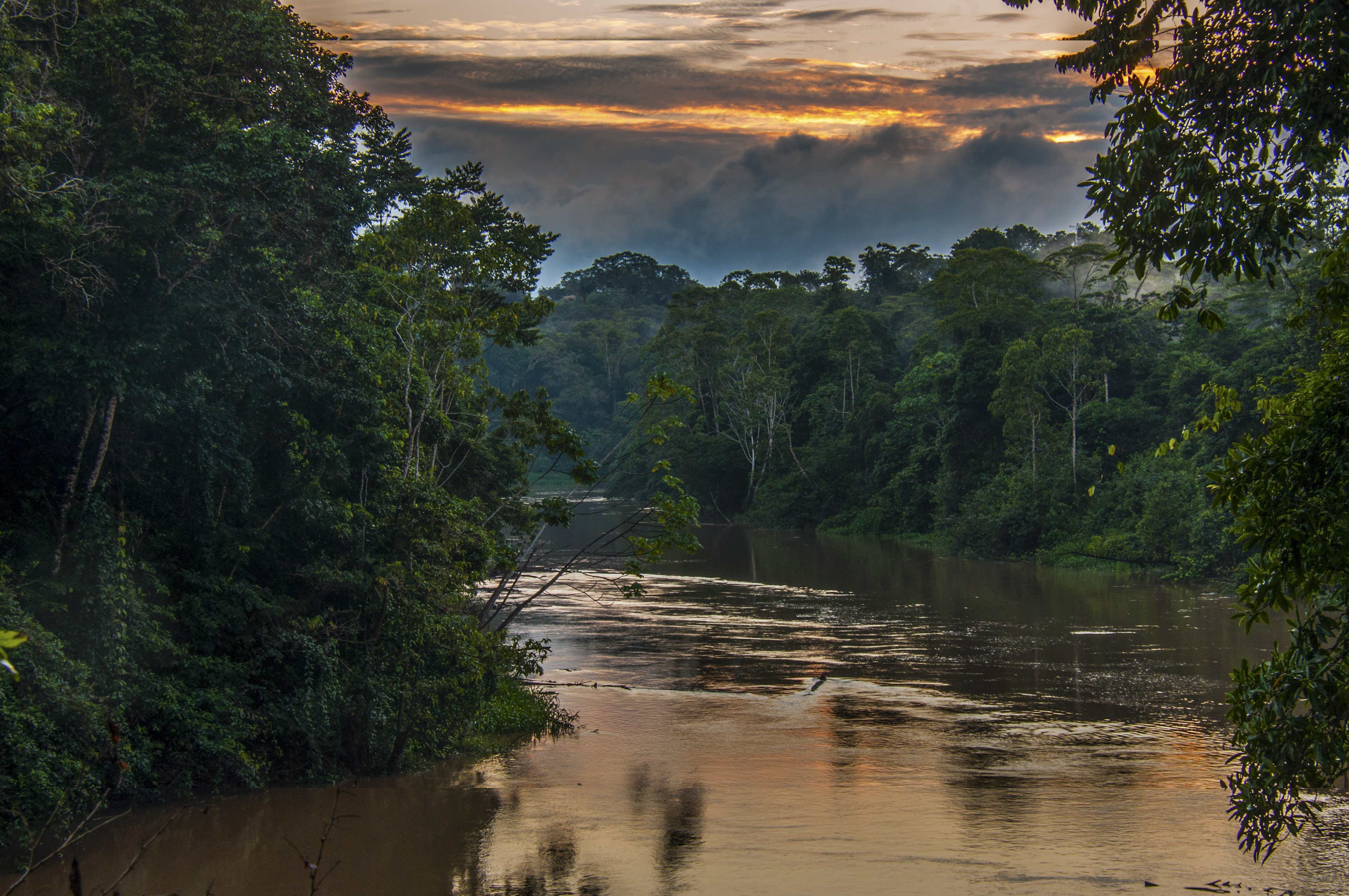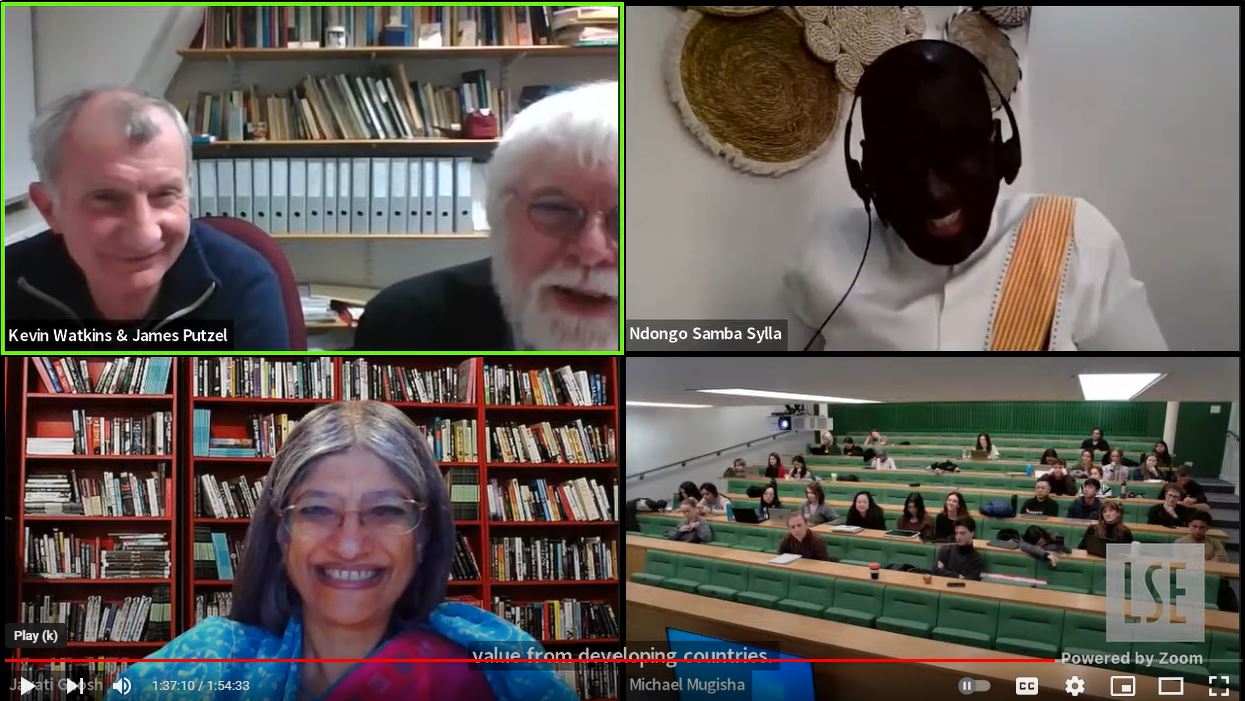Ecuador recently had a national referendum in which voters decided against further oil exploration in a protected area. This democratic decision was widely applauded by environmentalists. However, as Alejandra Padín-Dujon explains, there is more to the story: Ecuadorians were punished for their vote by a key player in the international financial regime.
It’s 2023, and it appears that the world has had enough of “greenwashing.” Regulators and investors alike are clamping down on empty or distorted private sector claims about their support for nature and climate action.
However, it appears that the converse trend may also be on the rise: penalties for legitimate action on the grounds that it harms the private sector. Historically, there have been many such cases. These have sometimes involved treaties, like the (primarily European) Energy Charter Treaty (1994), which still protects fossil fuel industry profits and has been used to contest national climate targets; and Chapter 11 of the original North American Free Trade Agreement (1994), which included strong investor protections that were applied against environmental regulation. Such penalties have, more broadly, been characteristic of situations where industry is powerful, and dissident communities are not.
Now, it appears that macroeconomic credit ratings may punish nature and climate action in developing countries. Better rating methodologies could be one part of the solution.
Backlash to a referendum in Ecuador
In August 2023, 58% of Ecuadorian voters opted to protect a nature reserve against further oil drilling (and to roll back existing operations) in a national referendum: a “historic” move widely lauded as a win for the environment. However, reports of the government’s commitment to honoring this referendum are mixed. Moreover, Fitch—one of the world’s “big three” sovereign credit rating agencies—downgraded Ecuador’s credit rating in anticipation of this referendum, adversely impacting the country’s ability to borrow or attract foreign investment.
According to the Fitch press release: “Downside risks to our forecast include from a stronger-than-expected El Niño; approval of the vote to halt oil extraction [emphasis added]; or the next interim president loosening fiscal policy to garner support ahead of elections in 2025.” Fitch summarizes its downgrade as a response to “[hindrances] to the sovereign’s market access”—a situation that may worsen due to the New York- and London-based firm’s decision.
Ultimately, the Fitch downgrade—economic justification and all—functionally penalizes democratic action to protect nature, beyond any direct economic repercussions to the decision. This sends a strong negative signal to developing countries that push for much needed decarbonization of their economies. As Ecuador is heavily economically reliant on oil, with approximately 40% of the value of its exports coming from petroleum, the results of this referendum are bold, even courageous.
Implications of the Fitch credit rating downgrade
Fitch’s downgrade bumped Ecuador from an already dismal rating (B-) to a dangerously low one (CCC+). Fitch classifies both Ecuador’s previous and new investment grade as “speculative,” a category indicating a higher level of credit risk. While Fitch claims that its categories “investment grade” (better) and “speculative grade” (worse) “do not imply any recommendation or endorsement of a specific security for investment purposes,” in practice, the downgrade carries material implications for Ecuador’s financial options.
Specifically, Ecuador will experience a reduced ability to access funding for development projects by issuing international bonds, or to attract foreign direct investment. Currently, the Organisation for Economic Co-operation and Development’s Official Development Assistance portal classifies Ecuador as an upper middle-income country. However, the discrepancies between countries classified as “middle-income” or even “upper middle-income”—to say nothing of high-income countries—is significant: as an upper middle-income country, Ecuador’s GDP per capita is just under 6,000 USD. For comparison, Bulgaria, the EU country with the lowest GDP per capita (also classified as upper middle-income), clocks in at more than double this figure: just over 12,000 USD.
Ultimately, it remains an open question whether Ecuador can afford to decarbonize its economy when facing the dual impact of foregone income and a downgraded credit rating. In a world that needs to decarbonize, where the global financial regime should actively incentivize a phase-out of fossil fuel production, the Fitch downgrade is regressive.
Nature and finance: misaligned priorities
According to a 2022 report by the United Nations Environment Programme, “it is widely recognized that private finance flows are predominantly negative for nature.” Moreover, positive private sector investments in nature “must increase by several orders of magnitude” in the coming years after disappointing growth between 2021-22. In short, current international financial flows are inconsistent with international nature priorities or nature-based solutions to climate change.
The Ecuador referendum highlights that the infrastructure controlling sovereign borrowing (here embodied by Fitch) values debt repayment above nature-positive and climate-positive policies. These repayment priorities, reinforced by credit rating firms but tacitly endorsed by governments, increase the stakes of an already contentious decision for developing countries: economy or environment?
The choice is not actually dichotomous. In reality, there are more synergies than trade-offs between nature and climate action, on the one hand, and sustainable development, on the other. However, when nature and climate benefits are not sufficiently legible to financiers, credit rating agencies, or policymakers, policy options appear increasingly bipolar.
Reforming credit rating methodologies
The question of how to reform credit rating methodologies is a thorny one. In a world in which favorable lending terms are determined more by ability to repay than by need, the Fitch downgrade appears reasonable, in a strictly economic sense. Any hit to Ecuador’s oil production could adversely affect the country’s ability to service its considerable debt, which currently rests at approximately 56% of GDP.
However, the Fitch methodology misses a key consideration: the nature-economy connection. According to a 2022 report authored by five reputable economists:
Biodiversity loss, decline of ecosystem services, and overall environmental degradation can hit economies through multiple channels. The combined macroeconomic consequences can impact sovereign creditworthiness. Yet, the methodologies published and applied by leading credit rating agencies (CRAs) do not explicitly incorporate biodiversity and nature related risks.
It would appear, then, that Fitch and others do not live up to their own standard: an objective and accurate assessment of sovereign creditworthiness. While the public might hope for a more prosocial economic system—one that rewards Ecuador for preserving a public good (nature), simply because nature is good for people, ecology, and the climate—ultimately, that is a complex and multifaceted battle. Civil society might make some progress by demanding more holistic methodologies from Fitch and others. As global awareness of the interconnectedness of nature, climate, and economies grows, this is certainly the least that credit rating agencies (and the governments and companies that rely on them) can do.
The views expressed in this post are those of the author and in no way reflect those of the International Development LSE blog or the London School of Economics and Political Science.
Featured image: Yasuni National Park is located in the Ecuadorian Amazon. It is considered one of the most biologically diverse spots on Earth. Yet, recent oil extractive activities, inside the reserve, are threatening this magnificent undisturbed rain forest. Photo taken by Jose Schreckinger via imaggeo.





